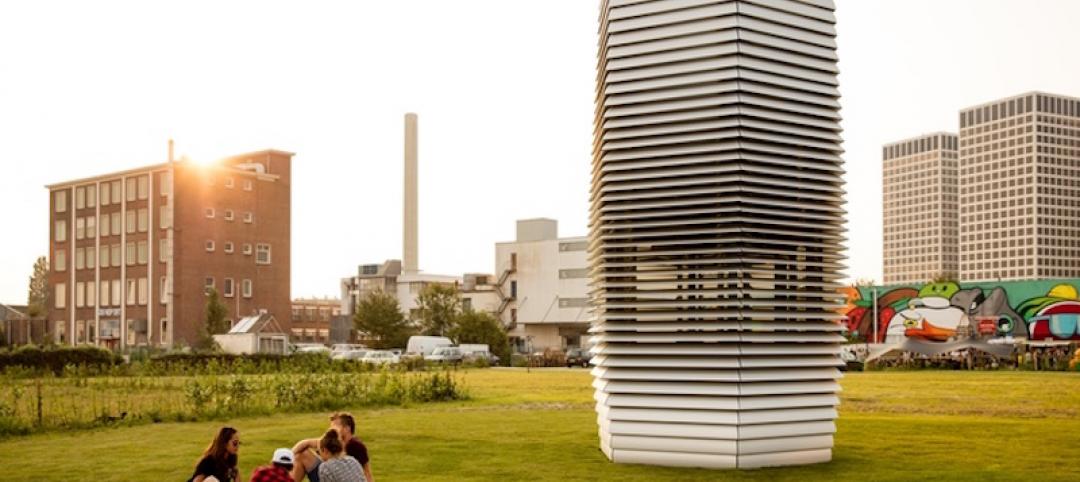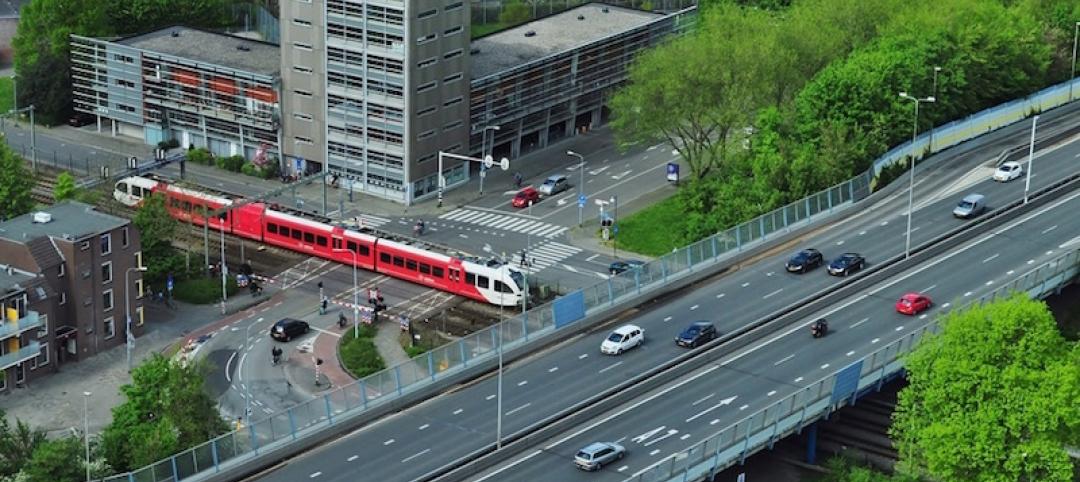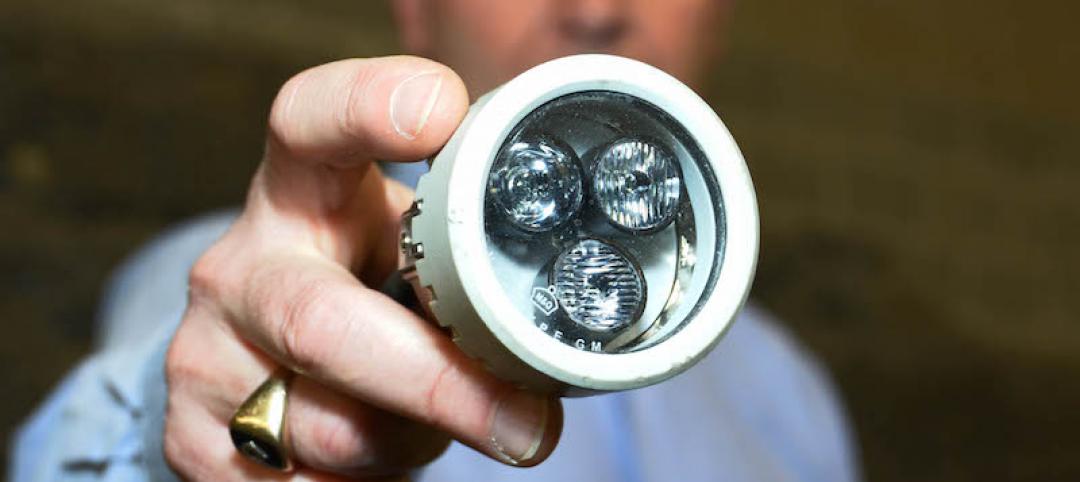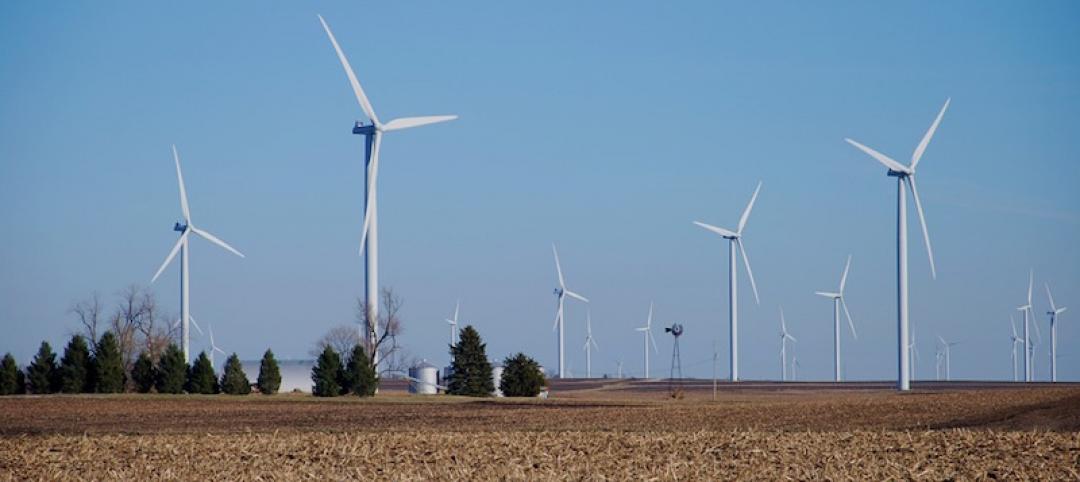Royal Philips, the global lighting supplier, has opened a 234-sm (2,519-sf) facility at the High-Tech Campus in Eindhoven, The Netherlands, which is conducting research with the goal of providing growers of fruits, vegetables, and herbs with LED light growing solutions. Other areas of research will focus on ways to grow more carbohydrate-rich crops, such as potatoes and wheat, indoors.
The facility, known as the Philips GrowWise City Farming research centre, uses connected LED systems that are customizable, allowing for the development of “growth recipes” tailored to each crop variety or a producer’s requirement, reports Inhabitat.
“Our aim is to develop the technology that makes it possible to grow tasty, healthy, and sustainable food virtually anywhere,” says Gus van der Feltz, Philips’ Global Director of City Farming. “The research we are undertaking will enable local food production on a global scale, reducing waste, limiting food miles, and using practically no land or water.”
Philips’ team has been able to change the shape, size, productivity and even oil content of many leafy greens and herbs. And because the plants can be stacked in layers, each with its own lighting system, sizable quantities of food can be grown in relatively small spaces.
The research center, one of the largest of its kind in the world, features four-layered mechanized planting racks in each of its eight climate rooms.
Philips’ team has been able to change the shape, size, productivity and even oil content of many leafy greens and herbs. And because the plants can be stacked in layers, each with its own lighting system, sizable quantities of food can be grown in relatively small spaces.
One of Philips’ partners churns out 900 pots of basil per year from one square meter of floor space. And with the cells being sealed and managed under strict hygienic protocol, the need for pesticides and chlorine washing can be significantly reduced, if not eliminated.
Philips, which has been active in horticultural lighting since 1936, has equipped several city farms, including GreenSense in Chicago. (Watch a short YouTube video to see what one of these farms looks like by clicking here.)
The company is hoping that its research facility will unleash lighting and technology innovations that, according to its press release, “will bring farm and fork within a few miles of each other,” and provide year-round growing solutions.
Royal Philips is launching this research center at a time when the world’s food supply is under increasing duress. The United Nations forecasts that by 2050, the world’s population will increase by 2.3 billion people, and that two-thirds of the total population will be living in cities.
In addition, 80% of the world’s arable land is already in use, a good part of which is struggling because of water shortages.



Related Stories
Green | Dec 13, 2016
Illuminated Water Cube highlights Pittsburgh’s new 8th Street Park
The Water Cube is a functioning art installation, dispensing water to the park’s visitors.
Sports and Recreational Facilities | Nov 14, 2016
Soccer stadium from Zaha Hadid Architects will be constructed almost entirely of wood
The architects say the project will be the greenest soccer stadium in the world once completed.
Green | Oct 27, 2016
Applying modern energy codes to building envelope retrofits [AIA course]
When applying current energy codes to existing buildings, a number of issues arise, particularly where the building exterior is concerned, writes Hoffmann Architects' Bradley Carmichael. This AIA CES Discovery course is worth 1.0 AIA CES HSW learning unit.
Green | Oct 12, 2016
Acting as a giant air purifier, this tower could help solve China’s pollution problem
The 23-ft tall tower operates almost entirely on wind energy.
Codes and Standards | Oct 10, 2016
New sustainable landscape development and management credential launched
GBCI offered the first testing opportunity Oct. 3 at Greenbuild
Codes and Standards | Oct 6, 2016
Obama administration will spend $80 million for smart cities initiatives
The technology is targeted for climate, transportation, resiliency.
Lighting | Oct 6, 2016
Healthcare systems lighting their way to savings
There has been a rapid improvement and availability of LED products as primary light sources in most healthcare facility applications.
Green | Oct 6, 2016
AIA Report: Mixed results in design projects meeting 2030 Commitment targets
More buildings are meeting certain goals, but energy intensity reduction results have flat lined
Green | Oct 6, 2016
GBCI announces arc, a new technology organization to measure and compare green building performance
Arc is a platform that will allow any building to participate and immediately start measuring performance, make improvements, and benchmark against itself.



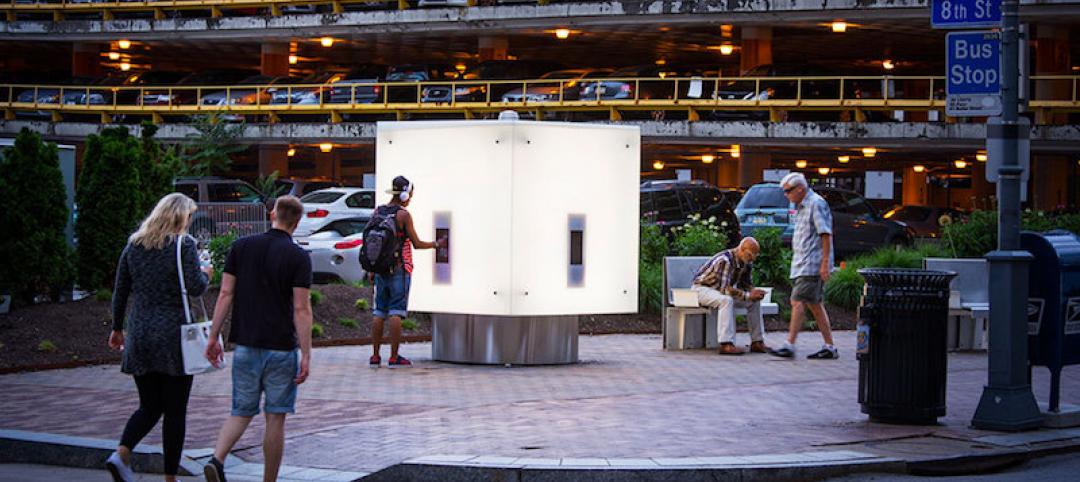
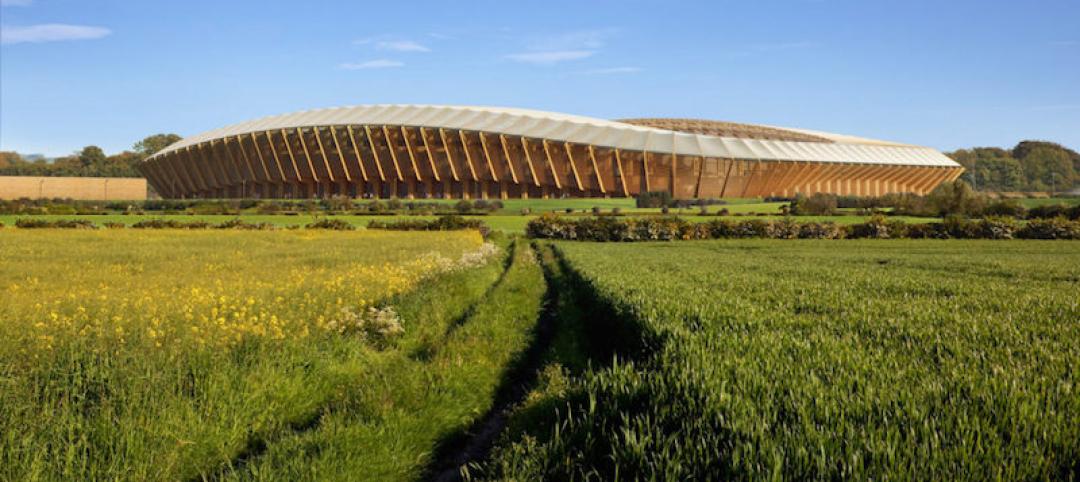
![Applying modern energy codes to building envelope retrofits [AIA course] Applying modern energy codes to building envelope retrofits [AIA course]](/sites/default/files/styles/list_big/public/OPENERHoffmann9.jpg?itok=uE70VdED)
